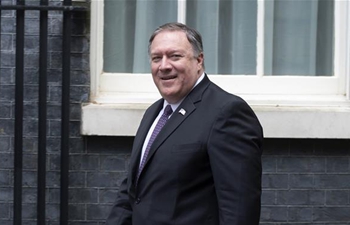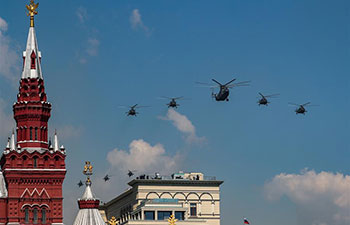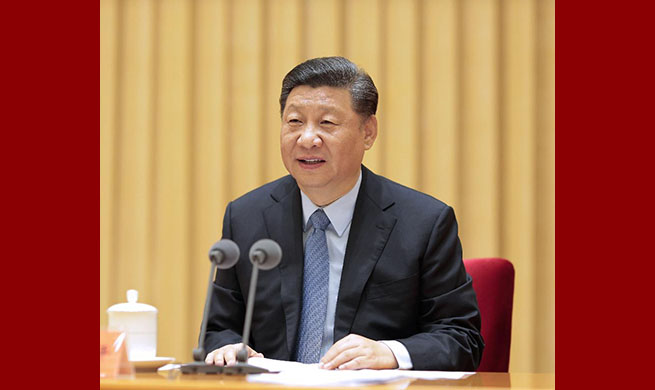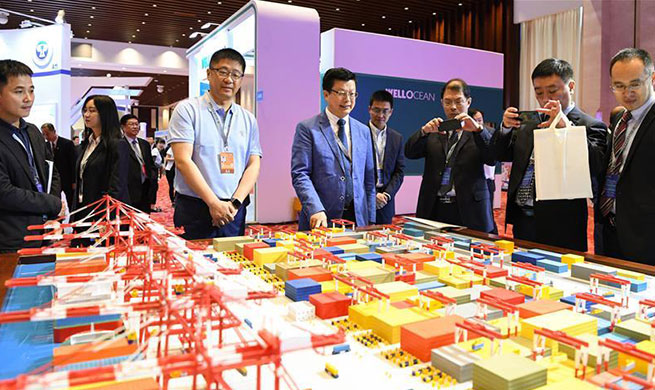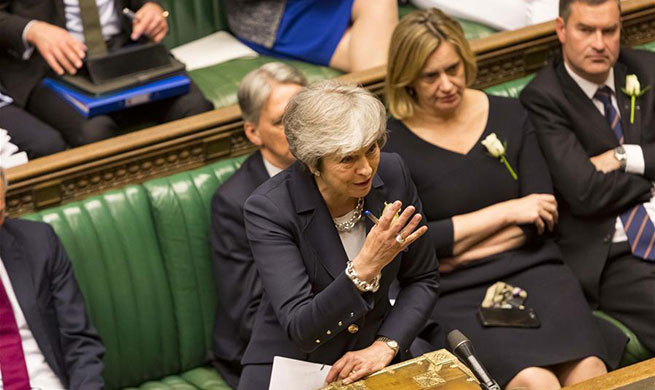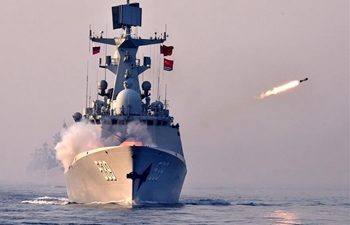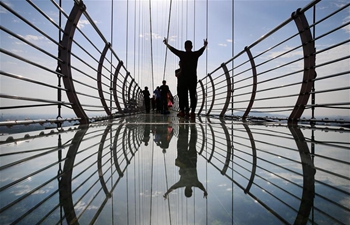by Claudio Tamisari
ROME, May 8 (Xinhua) -- As the tensions between the United States and Iran are increasing, some European experts on Wednesday jointly called on Washington to rejoin the Iran nuclear deal, saying "rejoining is wiser than destroying."
Released exactly a year after U.S. President Donald Trump's decision to withdraw from the deal, the joint call was signed by 21 European experts affiliated to various think tanks from 10 countries of the European Union (EU), and coordinated by Riccardo Alcaro, research coordinator with Italy's Istituto Affari Internazionali (IAI), and Shatabhisha Shetty, deputy director with the British European Leadership Network (ELN).
The Iran nuclear deal, formally known as the Joint Comprehensive Plan of Action (JCPOA), was struck in July 2015 between Iran, the P5 +1(the five permanent members of the United Nations Security Council--Britain, China, France, Russia,United States--plus Germany) and the European Union.
The landmark deal substantially freezes Iran's nuclear program in exchange for lifting economic sanctions on the Mideast country.
On May 8 last year, Trump announced U.S. withdrawal from the deal, saying it failed to prevent Iran from developing nuclear weapons, and replaced it with a "maximum pressure" strategy that led to the re-imposition of the U.S. sanctions suspended under the JCPOA, including measures targeting foreign companies doing business with Iran.
According to the experts, the withdrawal could hardly contribute to achieving Trump's objectives, while his decision has been harmful in several ways.
First, it "undercut global non-proliferation efforts." According to the International Atomic Energy Agency (IAEA), the United Nations nuclear watchdog is allowed by the deal to conduct regular inspections in Iran and Iran never violated the constraints on its nuclear program. However, if Iran restores its full nuclear program and limits IAEA's power, it would be harder to monitor its nuclear activities.
Furthermore, Iran's restarting of nuclear program could lead other regional states to engage in a nuclear arms race.
Second, the U.S. withdrawal "undermined the value of multilateral diplomacy." The JCPOA is an example of "effective multilateralism and successful diplomacy," as it involves countries with different foreign policy outlooks, while U.S. pressure strategy "devalues diplomacy as an effective way to address international disputes among rival states," said the experts.
Third, Trump's decision "weakened international law and institutions." According to the experts, the nuclear deal derives its authority from the United Nations Security Council (UNSC) and the Treaty on the Non-Proliferation of Nuclear Weapons (NPT), while Washington's unilateral decision without proper cause sends the "message that international obligations can be disposed of at will."
Fourth, it "harmed transatlantic solidarity." By pulling out of the deal and threatening punishments against EU companies and banks doing business with Iran, Trump has shown disregard for Europe's interests and "eroded trust in the transatlantic partnership," said the experts.
Fifth, it "contributed to exacerbating regional tensions." By replacing the JCPOA with the "maximum pressure" strategy, the United States galvanized Iran's rivals and made a compromise solution with Tehran less attractive. If Iran leaves the JCPOA, the experts believe, the Middle East will face a greater risk of military escalation.
Sixth, the U.S. decision has "inflicted undue pain on the Iranian population." With the U.S. re-imposition of previous sanctions with extraterritorial effects, companies and banks are scared of doing business with Iran, leading to a decline in the living standards of the Iranian people, including scarcity of essential goods, such as food or medicine.
As for the EU, despite the recent implementation of a special purpose vehicle (SPV) called INSTEX to facilitate humanitarian trade, Europeans should go further and establish another SPV to include oil imports from Iran, said the experts, adding that Europe should also deepen technical and political consultations with Iran.
The U.S. rejoining of the Iran nuclear deal could help contain all the negative effects mentioned above, while recreating a more cohesive international coalition that will work for the Middle East security, they said.
According to the experts, Europe could play a crucial role in future diplomatic initiatives with Iran, which are expected to ensure "multilateralism to be effective, international law and agreements must be respected."
Recently, the United States deployed an aircraft carrier group and bombers to the Middle East in a move it said to thwart a "credible threat" from Iran.
Largely in response to the U.S. re-imposition of sanctions, Iranian President Hassan Rouhani on Wednesday announced that Iran would begin to build up stockpiles of its enriched uranium and heavy water, but "It doesn't mean that Iran leaves the nuclear agreement."
The Iranian move is stopping the compliance with two of its commitments under the nuclear deal.

